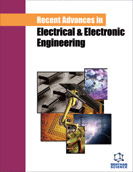Abstract
Background: How to solve the inconsistency of battery pack is a key point to ensure reliable operation of electric vehicles. Battery equalization is an effective measure to address the inconsistency. Passive equalization method has poor efficiency and thermal management problems. Average voltage equalization method is only suitable for situations where there is a significant voltage difference between batteries. The SOC-based equalization method is relatively difficult and may inevitably lead to the accumulation of errors during the process.
Objective: In order to avoid the disadvantages of traditional control methods, a new control method is proposed to improve the accuracy and self-adaptation of active equalization, which is easy to be realized without online calculation.
Methods: Cascaded bidirectional Buck-boost circuit is adopted as the novel equalization topology. Based on fuzzy PID theory, an adaptive digital-analog hybrid control strategy based on fuzzy PID is proposed in this paper. Parameter design of the fuzzy PID controller is carried out. A battery equalization system based on cascaded bidirectional Buck-boost circuit is designed and developed. Experimental verification is conducted on relevant hardware platforms.
Results: An adaptive digital-analog hybrid control strategy based on fuzzy PID is proposed. Compared to passive equalization, this proposed method provides high efficiency. Regarding traditional voltage control, the method improves control reliability and flexibility. Compared to the average voltage equalization method, the approach needs less convergence time. Moreover, the control method is much easier to realize than the SOC-based equalization method.
Conclusion: By using the presented adaptive control based on DC energy conversion circuit, the degree of self-adaptation of the equalization process has been obtained as higher and the inconsistency as smaller.
Keywords: Active equalization, lithium battery pack, adaptive control, DC energy conversion circuit, fuzzy PID controller, equalization system.











